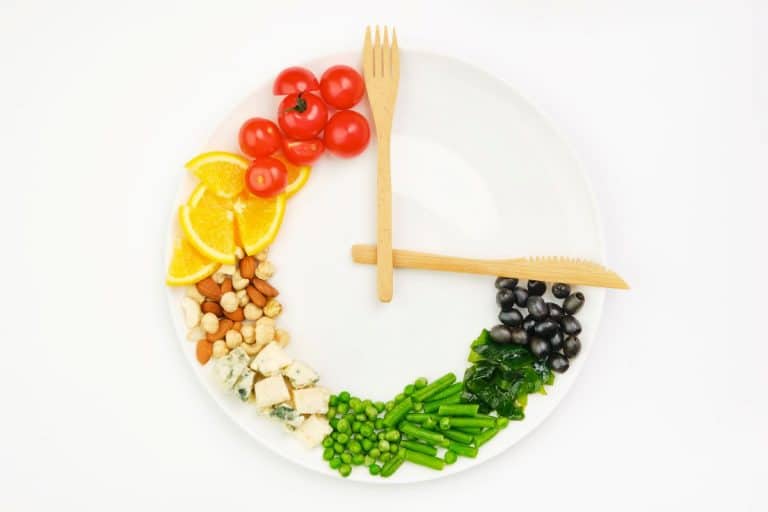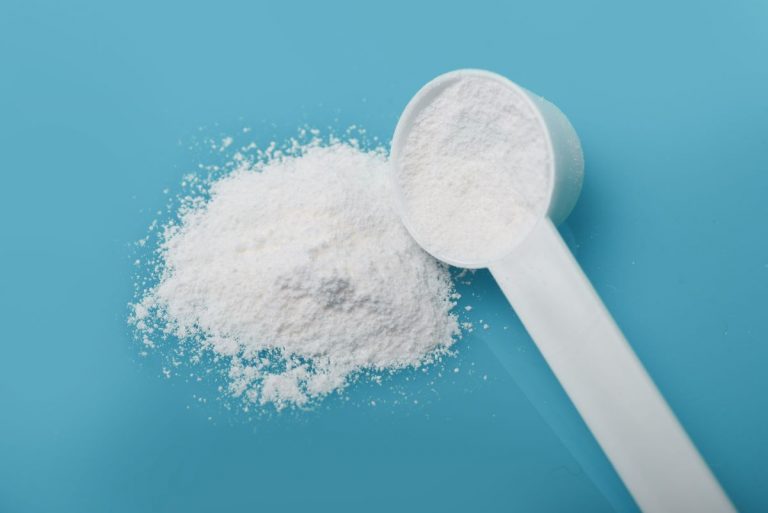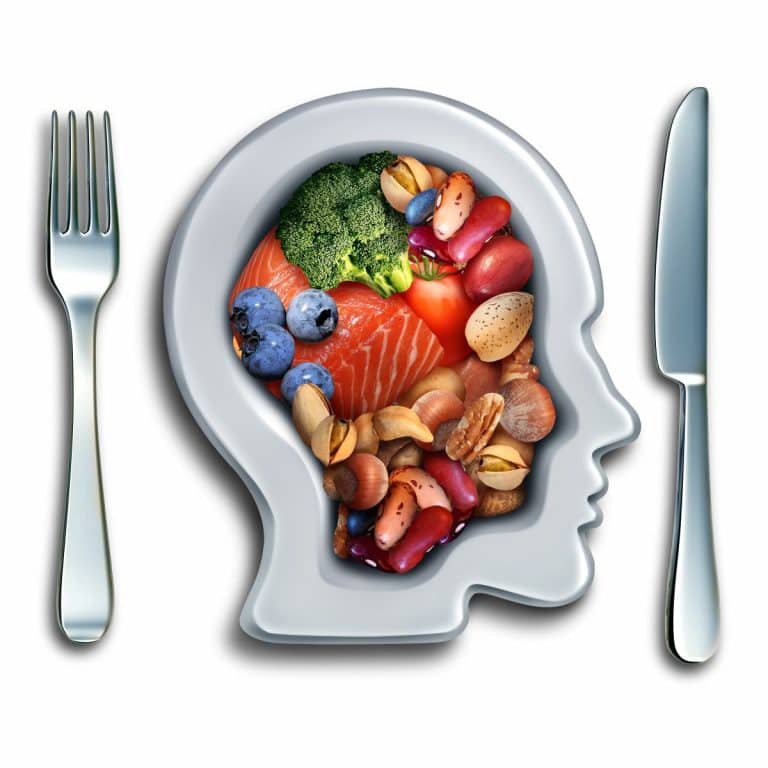ADHD Nutritionist: Functional Nutrition Tips
Are you interested in functional nutrition tips for reducing symptoms of ADHD from an ADHD Nutritionist?
Want an ADHD Nutritionist’s recommendations for supplements and lifestyle changes to improve ADHD symptoms?
Want to know science-based information on which nutrients may be help you with ADHD?
In this article, written by registered dietitian nutritionist Amy Archer, you will learn functional nutrition tips for improving ADHD symptoms.
This information is for educational purposes only. As with any medical advice, always check with your doctor or health care professional for personal and age-appropriate recommendations.
Medically reviewed by Amy Archer, Registered Dietitian Nutritionist
Table of Contents
What is ADHD?
Do you or someone you know have the following symptoms:
- A challenging time listening, completing tasks, losing items?
- Squirming and fidgeting constantly, talking all the time, cannot sit quietly?
- Interrupts, irritable, angry or aggressive?
Healthcare professionals use the American Psychiatric Association’s Diagnostic and Statistical Manual, Fifth Edition (DSM-5) to help diagnose ADHD.
There are three types of ADHD:
- Predominately inattentive presentation
- Predominately hyperactive-impulsive presentation
- Combined presentation
Did you know that according to the Centers for Disease Control and Prevention, Attention Deficit Hyperactivity Disorder affects about 11% of children and about 4% of the adult population has ADHD (1)?
Why is Functional Nutrition Important in ADHD?
Neuroinflammation and ADHD
There is increasing evidence that neuroinflammation is contributing to symptoms of ADHD (2). Autoimmune conditions, increased serum cytokines, genetic variations, toxins, and infections may trigger neuroinflammation.
BDNF, Neuroplasticity, and ADHD
BDNF (Brain Derived Neurotrophic Factor) is an important protein in the brain that is influenced by the BDNF gene. The BDNF gene gives instructions to make BDNF for brain development including memory and learning (3). Increasing BDNF stimulates the growth of new neurons in the brain.
A recent study reviewed the potential correlation between BDNF levels and ADHD. “Low BDNF levels may contribute to the neurodevelopmental deficits of ADHD and to the persistence of the disorder into adulthood”(4) .
The brain also can form new connections and grow new neurons which is called neuroplasticity. Neuroplasticity may be increased by nutrition, exercise, learning, and music (5).
Gut Brain Nutrition
There is new research on the gut microbiota and brain function linking food and mood (6). Research at Harvard shows that when you eat healthy foods, mood, and behaviors are better (7).
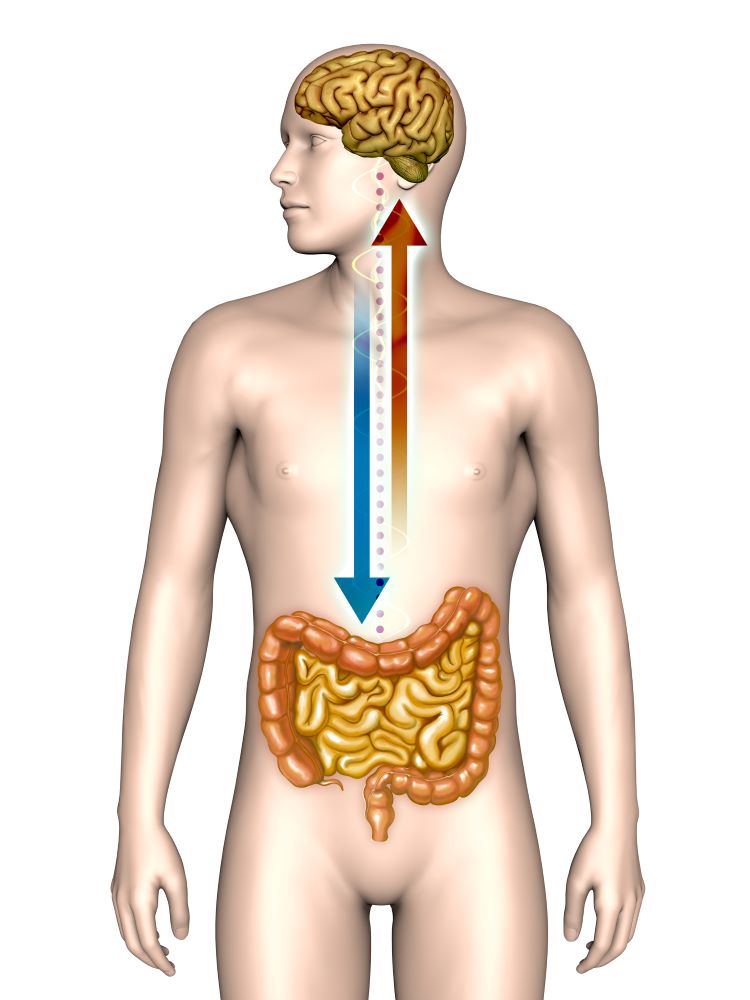
Different Types of Neurotransmitters
Neurotransmitters are messengers that carry information in the brain. They regulate many functions including heart rate, digestion, breathing, mood, and sleep (8).
Dopamine
Dopamine is a neurotransmitter that plays a role in the reward system of the brain, and it is released during pleasant activities. Studies show an association between ADHD and low levels of dopamine.
Serotonin
Deficiency of serotonin may trigger symptoms of ADHD (9).
Serotonin is important to help regulate mood, appetite, and sleep. A large amount of serotonin is made in the gastrointestinal tract therefore, your digestive health is important for your mental health.
GABA
GABA (gamma-aminobutyric acid) is produced in the gut and helps control anxiety and depression by reducing the activity of nerve cells in the nervous system. Low GABA may be the result of genetics, stress, lack of exercise, or nutritional deficiencies leading to poor gut health (10). A study in children showed reduced GABA in individuals with ADHD (11).
Reducing Brain Inflammation with Nutrition
Some of the simple guidelines of an ADHD nutrition plan may include limiting processed foods, sugar, dairy, gluten, and food colorings. We will discuss more in-depth evidence-based nutrition and lifestyle tips for reducing symptoms of ADHD.
Also, many vitamins and minerals (micronutrients) are required by the body to support good health and micronutrients have shown to improve ADHD symptoms (12).
MRT Food Sensitivity Testing
Eliminating foods may help reduce symptoms in many people with ADHD (13, 14, 15). There have been several studies showing improved behavior when on an elimination diet. Gluten, dairy, corn, soy, and food dyes are common offenders.
A food sensitivity test called MRT® (Mediator Release Test) measures sensitivity to 170 foods and chemicals. From your results, we create a personalized anti-inflammatory nutrition plan called the LEAP protocol (www.nowleap.com). MRT and the LEAP protocol has shown to reduce many symptoms in the gut, brain, skin, and more.
Food allergies are different from food sensitivities, so it is important to know the difference. Food allergies involve the immune system, specifically IgE antibodies. Think about an immediate allergic reaction with a peanut, egg, or tree nut allergy. An allergist usually identifies an allergic reaction with a skin prick or blood test.
Food sensitivities also involve the immune system. However, it is not IgE mediated meaning it does not involve IgE antibodies like in a peanut allergy.
MRT is an indirect method of measuring mediators (such as histamine, prostaglandins, cytokines) released from white blood cells. It also measures chemical reactions (tyramine, solanine, dyes, MSG, caffeine, nitrates).
Food sensitivities often have a delayed reaction, so they are challenging to identify with a typical elimination diet. The beauty of the MRT test and the LEAP protocol is it provides a “safe” list of foods to begin an elimination nutrition plan.
Amino Acids for the Brain
Protein is important because it stabilizes the blood sugar and helps maintain focus. It is also necessary to make neurotransmitters. Your body releases these neurotransmitters when you eat protein so for people with ADHD, it is important to eat adequate protein with each meal.
In the British Medical Journal is a study of 74 schoolchildren and their behaviors after eating a low glycemic index (GI) breakfast. The study reported that the low glycemic index breakfast improved mood and behaviors and may improve learning (16).
Good sources of protein for people with ADHD include beef, chicken, fish, eggs, beans, nuts, and seeds.
Many protein powders are available including beef, egg, pea, hemp, and others however, it is best to get protein from whole food sources.
An ADHD meal plan can provide guidelines for adequate protein intake.
Omega-3 Benefits for Brain Health
The brain is made up of about 60% fat. A nutrient dense diet with healthy fats from nuts, seeds, avocado, and fish will boost focus and brain health.
Omega-3 fatty acids have been shown to be beneficial in reducing symptoms of ADHD (17, 18).
These are essential fats for brain function, and we must get them from the diet.
Salmon, mackerel, herring, sardines, and anchovies are a few sources of omega 3’s. Some plant-based foods that are good sources include flax seeds, chia seeds, and walnuts.
Supplements are available and contain a combination of EPA (eicosapentaenoic acid) and DHA (docosahexaenoic acid).
Gummies and chewables usually do not have sufficient omega 3’s. The best forms are capsules or liquid (which can be put in juice or a smoothie).

Magnesium and Neurotransmitters
Magnesium participates in over 600 pathways in the body, and it is necessary for proper neurotransmitter function. It is thought that people with ADHD may have lower magnesium levels (19, 20). Studies show that magnesium (along with vitamin B6) reduces symptoms of ADHD (21).
Higher magnesium foods include pumpkin seeds, almonds, spinach, cashews, soybeans, chocolate, grass-fed dairy, and avocados.
There are many types of magnesium supplements available. Magnesium citrate is very kid friendly as it comes in powder and liquid (it is helpful for constipation but if too much, it may have a laxative effect).
Some other preferred forms are glycinate, malate, and L-threonate as they are tolerated and absorbed well. Magnesium threonate has recently been studied to help with learning and memory (22).
B Vitamins for ADHD
B vitamins are water-soluble vitamins that are important in cell health, methylation, and in many pathways for brain function. B6 plays a role in over 100 enzymatic reactions in the body and in cognitive development. Vitamin B6 may help to raise serotonin levels and improve behavior (23).
Low levels of B6, B9 and B12 levels are often seen in people with ADHD and testing is often recommended (24, 25). Vitamin B testing may be through conventional serum testing, micronutrient, or OAT (organic acid) testing.
Sources of Vitamin B6 include chickpeas, salmon, tuna, chicken, turkey, and potatoes. Pyridoxal-5-phosphate is the active form of vitamin B6 and helps transport minerals like magnesium across cell membranes.
Folate (B9) is found in beef liver, spinach, asparagus, black-eyed peas, Brussels sprouts, avocado, and broccoli. Methyl folate is well absorbed and important for individuals with the MTHFR mutation (26).
Vitamin B12 is naturally found in animal products therefore, if someone is vegetarian or vegan, it is important to check B12 levels. B12 is available in many forms including methylcobalamin, hydroxocobalamin, and adenosylcobalamin.
Zinc Deficiency and Picky Eating
Zinc plays a critical role in brain health and in the production of neurotransmitters like dopamine, norepinephrine, and serotonin. Low zinc levels are often seen in children with ADHD and may affect ADHD symptoms (27).
Low levels of zinc can also affect taste and smell so measure levels with a picky eater.
Some foods high in zinc include oysters, beef, crab, lobster, pork, baked beans, and chicken.
Supplements contain many forms of zinc. Studies have shown that zinc picolinate is better absorbed than other forms of zinc. Zinc carnosine may protect the gut (28).
Balancing zinc and copper is important so check with your practitioner for appropruiate dosages.
Best Probiotics for ADHD
Research field on the gut-brain connection is rapidly growing as we see a positive relationship between a healthy gut and mental health.
As Hippocrates said, “All disease begins in the gut”. Scientists have discovered the relationship between the gut and the brain and called it the “gut-brain axis”. The nervous system in the gut is often referred to as the “second brain”.
Gut bacteria affects our neurotransmitters and keeps them in balance. Several studies have shown that a healthy microbiome influences mental health.
In a study of 81 children (40 diagnosed with ADHD), zonulin was increased in the ADHD group and was associated with hyperactivity (29).
A recent study of the microbiome and ADHD showed unique gut bacteria linked to ADHD, increase in GI symptoms of constipation and flatulence and “that immune dysregulation in ADHD be associated with an altered microbiome, low-grade inflammation, and gastrointestinal dysfunction” (30).
70 people were studied for the effects of a probiotic yogurt or a probiotic supplement on mental health. The probiotic groups showed less stress, anxiety, and depression (31).
Probiotic foods include sauerkraut, kimchi, kefir, kombucha, pickles, and yogurt.
Lactobacillus rhamnosus GG was shown in a recent study to reduce the risk of neuropsychiatric disorders later in life (32). A summary of probiotics was published in Integrative Medicine in 2016 showing a literature review of probiotic strains and influence on mental and neurological health (33).
Phosphatidylserine for ADHD
Phosphatidylserine (PS) is a phospholipid that helps the brain cells communicate. A major benefit of PS is that it blunts cortisol which also reduces stress and anxiety (34).
Studies show that phosphatidylserine reduces some symptoms of ADHD by improving focus and cognition (35). PS also has shown to improve memory, decrease stress, and help with learning (36).
Soy is a main source of phosphatidylserine as well as white beans, egg yolks, and liver however, it may be challenging to get adequate amounts from food sources.
Phosphatidylserine supplements are often made from soy or other plant sources. They have been studied for short term use so check with your clinician on usage. Check ingredients if you avoid soy.
Iron, the Mineral for Brain Development
Iron is important for people with ADHD as it plays an important role in brain development and dopamine regulation. Iron status can be affected by nutritional intake, gut health, and inflammatory bowel diseases. Lower iron levels (serum ferritin) are often seen in children with ADHD (37).
Heme iron foods such as meats, poultry, and fish are good sources of iron. Non-heme sources are fortified foods, vegetables, and legumes.
Absorption of iron increases when taken with other foods high in vitamin C. Calcium can affect iron absorption so be cautious of dairy and iron sources eaten together. It is best to get iron from food sources when possible.
There are many types of iron supplements available, some causing constipation and/or stomach upset. My favorite is iron biglycinate. There is also liquid iron available for kids.
Always check iron levels (including ferritin) particularly in children prior to any aggressive supplementation.
Vitamin D and ADHD
Vitamin D is a hot topic lately. It is an important part of general health including immune health, bone health, and now scientists are looking at vitamin D and mental health.
Did you know that nearly every cell in the body has a vitamin D receptor and vitamin D is also a neurotransmitter precursor which helps create serotonin?
A study of 80 children concluded that children with ADHD have lower levels of vitamin D and vitamin D receptor (38). Studies have shown that vitamin D may be beneficial in children and adolescence to support mental health (39).
As you can see, optimizing vitamin D is cornerstone to improving symptoms of ADHD.
Food sources of vitamin D include fatty fish, fortified foods, liver, and egg yolks. Unfortunately, it is challenging to get enough vitamin D from foods alone.
Many people get some vitamin D from sun exposure. However, with people limiting sun exposure due to skin cancer, the amounts have become less. Also, there is a genetic variation which may limit absorption of vitamin D from the sun.
Vitamin D supplements are beneficial for many people. Always check your vitamin D level to see how much supplement may be necessary (preferably once a year going into the fall season). If taking a Vitamin D supplement, remember to take with some fatty food as it is a fat-soluble vitamin.
Sulforaphane Brain Benefits
Sulforaphane (SFN) is a powerful phytochemical found in cruciferous vegetables and it has shown to influence brain health, cancer, cardiovascular disease, and bone health (40). SFN has shown promise against inflammation and possibly symptoms of ADHD (41).
Glucoraphanin, the sulforaphane precursor, is found in many cruciferous vegetables such as broccoli, cauliflower, kale, and cabbage. Myrosinase (a heat sensitive enzyme) is necessary to breakdown glucoraphanin to SFN, so a quick tip is to cut your vegetables about 40 minutes before cooking to allow the SFN to activate. You can also add mustard, sauerkraut, or horseradish to the vegetables to activate SFN (42).
SFN supplements are also available. Be sure to get one with myrosinase or the activated SFN.
Nutritional Lithium for ADHD
Lithium is a mineral found is our water and soil. Lithium carbonate is a medication used in high doses to treat bipolar disorder (43).
At lower doses, the naturally occurring nutritional lithium can be neuroprotective and beneficial for brain health.
A study showed nutritional lithium (lithium orotate) reduced aggression, irritability, and impulsivity like Ritalin on young adults with ADHD (44).
We consume about 1 to 3 mg per day of lithium in our food and water (45). Lithium orotate is available in supplement form.
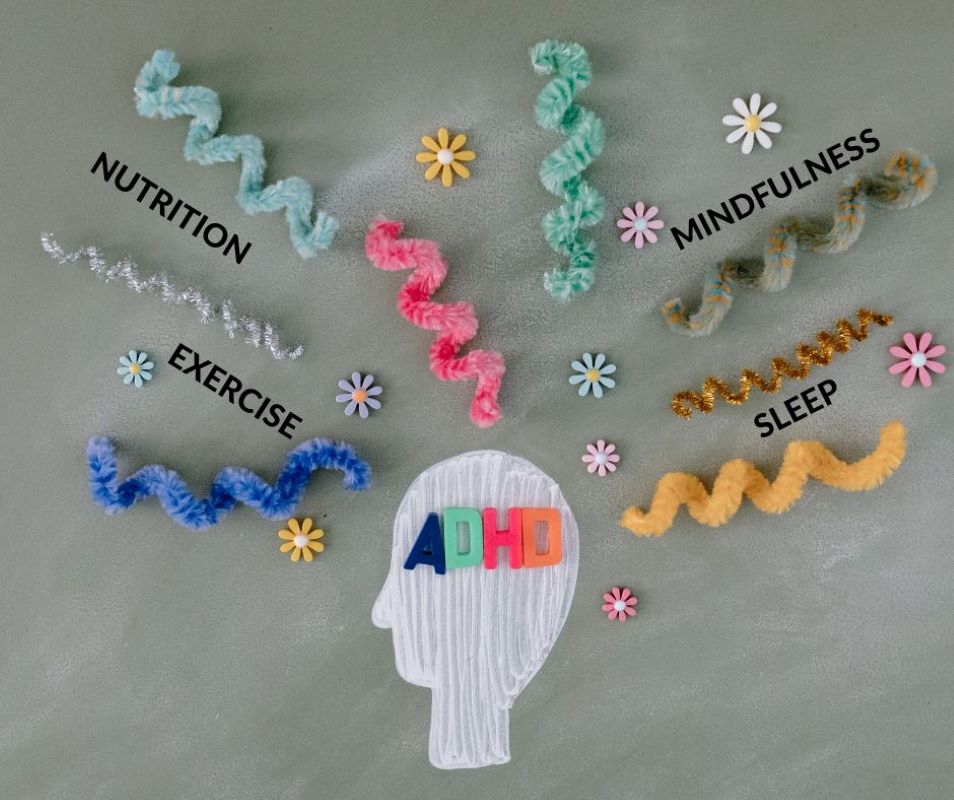
Lifestyle
Lifestyle plays a large role in physical and mental health.
Exercise
Exercise reduces inflammation, increase BDNF, and lowers your stress hormones (46). A systematic review showed clinical benefits of physical exercise for individuals with ADHD (47).
The recommendation is to exercise about 150 minutes per week (about 30 minutes of cardiovascular exercise 5 days per week). Always check with your healthcare practitioner for individual recommendations.
Mindfulness for Executive Function
Mindfulness is “being in the present moment”. It strengthens the brain and increases grey matter and has been shown to improve executive function (48).
Mindfulness can be deep breathing or meditation.
ADHD Insomnia
Sleep disorders are common in individuals with ADHD. Keeping a regular sleep schedule can help reduce symptoms of ADHD.
Being In Nature with ADHD
Nature is good for the brain. Studies show spending time outdoors reduced ADHD symptoms (49).
Exercise, mindfulness, sleep, and being in nature are all complementary lifestyle choices to reduce symptoms of ADHD.
Best Focus Supplements for ADHD?
Talk to your health care professional for personal recommendations.
Nutritional Testing for Deficiencies with ADHD
There are several tests your healthcare professional can order to test for deficiencies including zinc, B vitamins, ferritin, and vitamin D. Some functional medicine practitioners use micronutrient tests and organic acid tests to check nutrient deficiencies.
Where do I go from here?
Nutrition can play an important role in managing symptoms of ADHD (50). Nutrition, supplements, exercise, mindfulness, and sleep may help to reduce symptoms of ADHD.
An ADHD meal plan has many benefits including reducing stress, saving time, reducing food waste, and saving money.
Purchase my book, An Integrative & Functional Approach to ADHD Management: Guidance for the Clinician.
This post has been updated and revised from its original publication in 2020.
Test don’t guess.
Contact me to schedule an appointment to review your personalized nutritional health.
© Amy Archer RDN, CLT, CHWC

